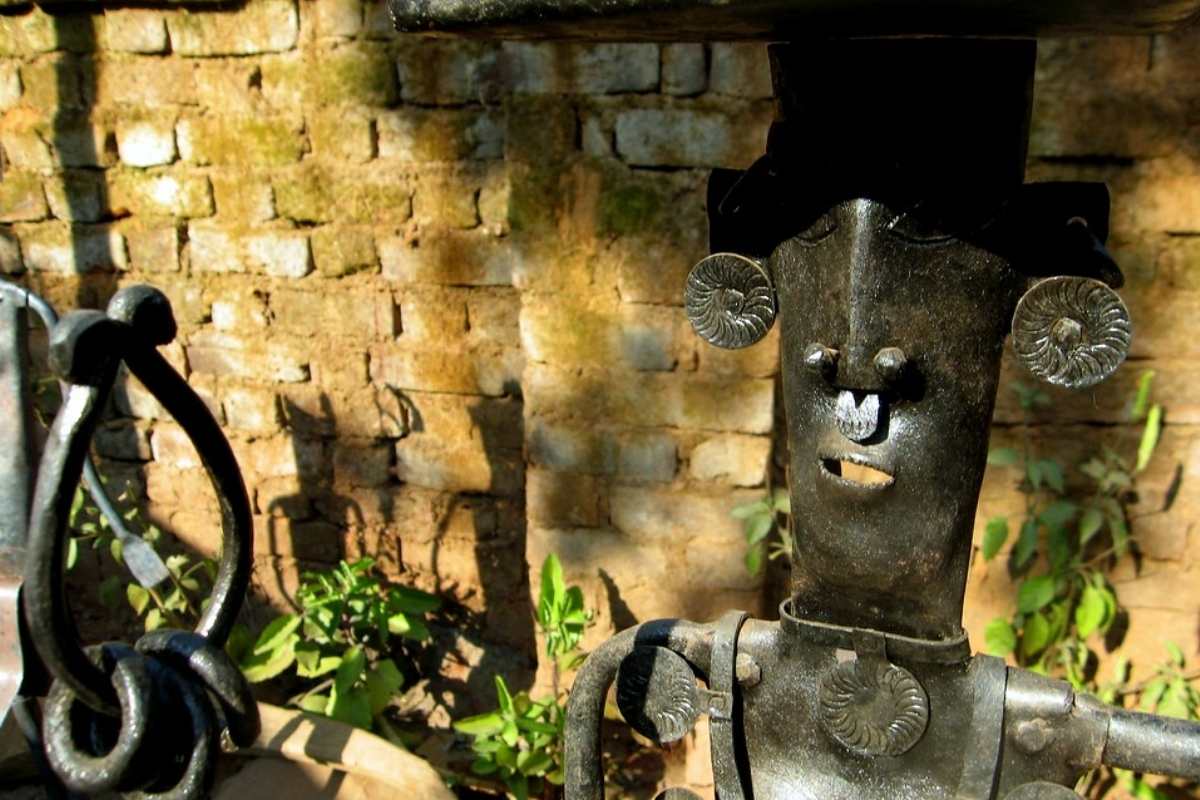- Prime Minister interacted virtually via video conferencing with the beneficiaries of ‘Viksit Bharat Sankalp Yatra’ in south Chhattisgarh’s Kanker district to take stock of the ground-level reality of the government schemes in the camps organized under the initiative.
- The PM expressed his delight on the execution of various central government schemes in Chhattisgarh as the Yatra is gaining impetus across the nation to generate awareness through outreach activities to ensure every beneficiary is covered under the welfare programmes.
- PM Modi while interacting with one of the beneficiaries Kumari Bhumika Bjaurya from Bhaneda village gained insight into the positive output and and favorable change yielded from the Minor Forest Produce (MFP) collection carried out by the women (most tribals) through the Van Dhan Vikas Kendras and and the various useful products prepared by them.
- Section 2(4) of the Indian Forest Act 1927 defines only “forest-produce”, and this term connotes to those products whether found in, or brought from a forest such as
- Timber, charcoal, caoutchouc, catechu, wood-oil, resin, natural varnish, bark, lac, mahua flowers, mahua seeds, kuth and myrabolams,
- trees and leaves, flowers and fruits, and all other parts or produce of trees,
- plants not being trees (including grass, creepers, reeds and moss), and all parts or produce of such plants,
- wild animals and skins, tusks, horns, bones, silk, cocoons, honey and wax, and all other parts or produce of animals, and
- peat, surface soil, rock and minerals (including lime-stone, laterite, mineral oils), and all products of mines or quarries;
In short, the essential condition to be qualified as a forest produce is that the products should be either found in or be brought from forest.
- Minor Forest Produce (MFP) is a subset of forest produce and got a definition only in 2007 when the Scheduled Tribes and Other Traditional Forest Dwellers (Recognition of Forest Rights) Act, 2006, was enacted.
- Section 2(i) of the said Act defines a Minor Forest Produce (MFP) as all non-timber forest produce of plant origin and includes bamboo, brushwood, stumps, canes, Tusser, cocoon, honey, waxes, Lac, tendu/kendu leaves, medicinal plants and herbs, roots, tuber and the like.
- Thus, the definition of “minor forest produce” includes bamboo and cane, thereby changing the categorization of bamboo and cane as “trees” under the Indian Forest Act 1927.
- The Government of India has launched a central sector scheme for marketing of Minor Forest Produce through Minimum Support Price (MSP) and development of value chain to ensure fair monetary returns to MFP gatherers for their efforts in collection, primary processing, storage, packaging, transportation etc.
- The scheme envisages fixation and declaration of Minimum Support Price for the selected MFP based on the suggestions /inputs received from Tribal Cooperative Marketing Development Federation of India (TRIFED) which came into existence in 1987, and the States concerned.
Procurement and marketing operation at pre- fixed MSP is undertaken by the designated State agencies. The Scheme has initially being implemented in States having areas under Vth schedule of the Constitution of India namely; Chhattisgarh, Madhya Pradesh, Odisha, Jharkhand, Gujarat, Maharashtra, Rajasthan, Andhra Pradesh and Telangana for non- nationalized and abundantly available 12 MFPs namely, (i) Tendu, (ii) Bamboo, (iii) Mahua Seed, (iv) Sal Leaf, (v) Sal Seed, (vi) Lac, (vii) Chironjee, (viii) Wild Honey, (ix) Myrobalan, (x) Tamarind, (xi) Gums (Gum Karaya) and (xii) Karanj. The Scheme also envisages training of 1,00,000 MFP gatherers of tribal origin on sustainable harvesting and value addition activities

